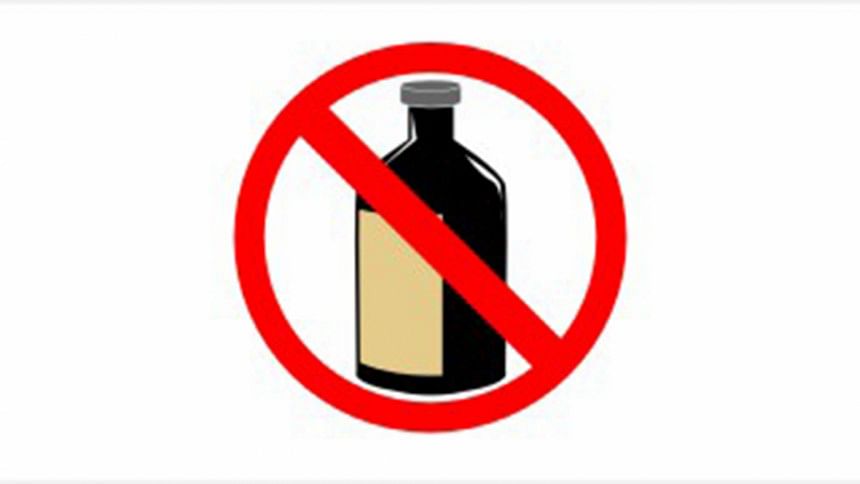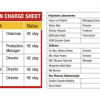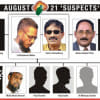All records 'lost' from drug office

All documents relating to the country's first ever detection of paracetamol syrup adulteration in 1992 have vanished from the Directorate General of Drug Administration (DGDA), the public institution responsible for checking drug adulteration and prosecuting those committing the crime.
The disappearance of the files deals a severe blow to three relevant cases that could be pursued if evidence were available. Proceedings regarding two of the cases are currently under High Court stay orders and have been awaiting hearings for seventeen years. The other one is being proceeded with in the Dhaka Drug Court.
Documents available in court indicate clearly that the DGDA deliberately destroyed the cases. Meanwhile, people present during the 1992 drugs test recalled how proper steps regarding the matter had been bypassed since the very beginning.
The disappearance of the documents came to light after The Daily Star in November last year officially requested the DGDA for allowing access to all documents relating to drug adulteration in 1992 in compliance with the Right to Information Act.
"Samples of paracetamol syrups were collected from Shishu Hospital following a verbal order by the then Directorate of Drug Administration director general. Currently there is no record in the department on the samples collected," replied the DGDA in response to the request on March 23 this year.
Responding to a set of ten queries in the request, the DGDA said that except for Dhaka Shishu Hospital no institution had ever reported deaths of children owing to the administering of adulterated paracetamol syrup.
The report from Shishu Hospital was also verbal, said the reply.
The Daily Star retrieved documents from individuals about the drug test. Documents show the drug analysis conducted at a government owned institution under the direct supervision of government analysts and an expert consultant from the World Health Organisation (WHO) detected lethal chemical diethylene glycol in paracetamol syrups manufactured by five companies in 1992.
Read all stories on paracetamol syrup scam -
- Justice delayed, justice denied
- All records 'lost' from drug office
- JUSTICE DELAYED, NOT DENIED
- Drug admin official couldn't care less
- A regret for life
The test result was accurate beyond suspicion since subsequent independent testing -- undertaken in laboratories in the US and obtained by The Daily Star -- confirmed the results.
A number of doctors from Bangabandhu Sheikh Mujib Medical University (BSMMU) and Dhaka Shishu Hospital, involved in the matter at that time, also mentioned that deaths of children from acute renal failure following an intake of adulterated paracetamol syrup actually began in 1972 and by 1992 had killed over 2,000 children by 1992.
In December 1992, detection of the adulteration led to five cases being filed against four companies -- Adflame Pharmaceutical Ltd, Polychem Laboratories Ltd, BCI (Bangladesh) Ltd, and Rex Pharmaceutical.
The fifth company, City Chemical and Pharmaceutical Works Ltd, which was tested positive for producing adulterated paracetamol syrup, was spared prosecution for reasons unknown.
The DGDA, however, does not have any idea about the current status of any of the five cases, according to its reply. In an apparent move at self defence, the two-page letter said officials who had dealt with the issue are "either dead or already retired".
The Director General (DG) of the DGDA, Abul Kalam Azad, repeatedly insisted on his ignorance about the matter and admitted having no record protected.
Court records show that proceedings relating to one of the five cases -- one of the two filed against Adflame -- were suspended only two years into its filing, even before charges could be framed against the accused. The complainant, Abul Khair, the then drug superintendent, never appeared before the court with the seized evidence, although the court notified him five times within six months beginning from May 1994 about his appearance before it.
"The prosecution has failed to produce the seized Flamodol syrup [adulterated paracetamol syrup brand produced by Adflame]. As such charges cannot be framed. The proceedings of the case be stopped....and the accused be released," the court finally said in its order of November 2, 1994 in connection with the case.
In a recurrence after sixteen years, when another case filed against Adflame went into the trial process in 2009, Abul Khair gave a deposition in favour of the accused.
"The case was weakened with wrong documentation and specifically wrong presentation of seizure list, apparently an intentional mistake," said Public Prosecutor of Dhaka Drug Court Mahmud Hossain Jahangir regarding the case.
The allegation was substantiated by instances and the experiences of those present during the paracetamol syrup test at Essential Drug Companies Limited (EDCL), an autonomous drug manufacturing company of the government where the test took place.
"We repeatedly told the government high-ups present during the test that we wanted to properly record every step in the logbook of our company, but they said that wouldn't be necessary" said a senior EDCL official, adding, "Steps to have the total process of tests documented and recorded were deliberately avoided."
The only case which saw completion of a trial was against Rex Pharmaceutical, in which the prosecution failed to prove the adulteration charge as government drug analysts themselves raised suspicions over the authenticity of their own modalities of analyses. As a result the case was dismissed and the two accused were acquitted and released in 2003 by the Mymensingh Drug Court. The complainant, again, was Abul Khair.
The fallout is that adulteration of drugs continues to take place. In 2009 adulterated paracetamol produced by Rid Pharma reportedly killed 28 children.
"The government knows everything and sees children die," said Muhammad Ullah, an employee at Bangabhaban, who lost his one and a half year old son Tanvir Ahmed on September 16, 1990, several days after the child had been administered paracetamol syrup following a fever.

 For all latest news, follow The Daily Star's Google News channel.
For all latest news, follow The Daily Star's Google News channel. 







Comments